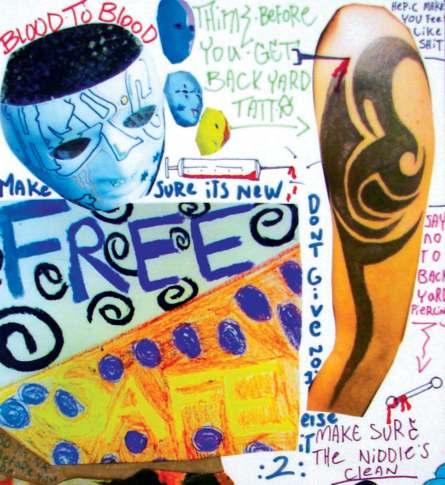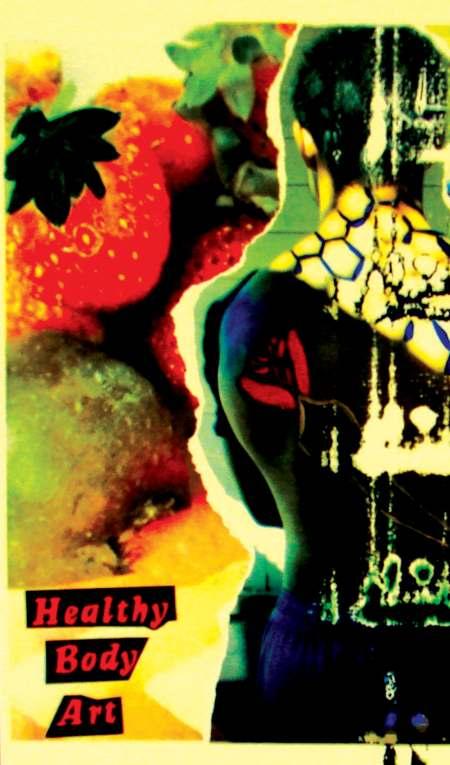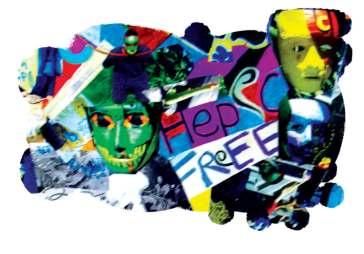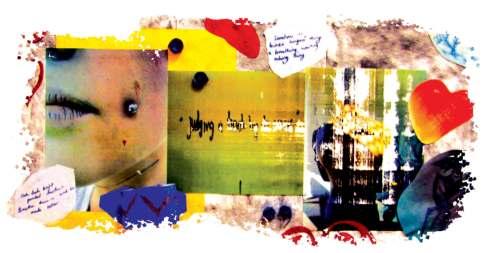BEWARE OF BACKYARD OPERATORS!
The greatest risk for transmission of potential infections comes from operators who avoid the notice of a professional body or government supervision. They might operate from their home or offer to come to your home. They might have an unregistered studio; these operators are not monitored by the health authorities, and therefore not complying with hygiene and sterilisation requirements. They may not care about their professional reputation or business, and while they may be a lot cheaper, the risks of infection or poor work are much higher. You should always go to a professional studio.
BEWARE OF PIERCING PARTIES!
At a piercing party, a number of people get pierced at the same time, sometimes by a friend. There is a high chance that the needle, gloves or a piece of piercing equipment will be reused, and that proper sterilisation of other equipment and jewellery will not be carried out—after all, how many homes have an autoclave? Even the ice used to reduce swelling can transmit hepatitis C should there be the tiniest speck of infected blood on it.
Alcohol or drugs may also be involved, leading to risk-taking behaviour. Peer pressure may also influence people to take risks they would normally avoid. Just because someone else isn’t concerned about the possibility of infection with a blood-borne virus, it doesn’t mean that you should endanger yourself.
Hepatitis SA
Ph 1800 437 222 or (08) 8362 8443
Kaurna Country
3 Hackney Rd Hackney SA 5069 PO Box 782 Kent Town SA 5071
www.hepsa.asn.au
FOR MORE INFORMATION, CONTACT:
Hepatitis SA 1800 437 222
www.hepatitissa.asn.au
Body Art Resources Online bit.ly/bodyartresources
SA Health bit.ly/sabodyart
The Association of Professional Piercers (International)
www.safepiercing.org
Australian Medical Association
Body Piercing & Health bit.ly/amabodyart
SA Health has contributed funds towards this Program. Artwork in this pamphlet created by young artists for the C-Pix Project.
Body Art & Hepatitis

Deciding to have a part of your body tattooed or pierced is very significant. As well as the tattoo or piercing being a permanent part of you from then on, you may end up with something you didn’t want— viral hepatitis. Hepatitis B and hepatitis C are viruses that can stay with you for your whole life, attacking your liver and leading to cirrhosis and liver cancer. Hepatitis C is a virus which is transmitted from blood to bloodstream, while hepatitis B can be transmitted through blood and other bodily fluids. A speck of blood too small to see can carry these viruses. That speck of blood might be on an unsterile needle, on a previously used disposable glove, or even a fingertip. This is why the use of new, clean equipment (like needles and gloves) for piercing or tattooing is so important, and why proper sterilisation of other equipment (like tattooing machines or pens) is vital. Sterilisation is a process which kills all bacteria, viruses and parasites on the equipment.
There are two important questions you should ask the tattoo artist or body piercer before you get a tattoo or piercing.
• 1. Do you have a sterilising unit?
Many studios and body artists use prepacked, sterilised equipment. If they do, make sure that everything that is used to penetrate your skin (including the body-piercing jewellery itself) comes from a sealed bag which is opened in your presence. Tattoo artists should always use new ink containers, and not dip into unsealed containers that have been used for other customers.
If the equipment is not prepacked, you need to find out whether the body artist uses a sterilising unit called an autoclave. Only an autoclave ensures appropriate sterilisation. Body artists should also wash their hands and wear new disposable gloves for every procedure.
• 2. Do you use single-use, disposable needles?
If the studio reuses needles and other equipment, this can increase your chance of being exposed to a blood-borne virus or other infection. Simply soaking needles or body-piercing jewellery in a disinfectant or other cleaning solution is not safe enough. All needles should be new, single-use, come from sealed packaging, and be opened in front of you.
There are several other things you should think about before getting a tattoo or piercing.
INFORMATION FROM FRIENDS
Talk to friends who have had body art done, and whose judgment you trust. Did they have any problems, like an infection during the healing process? Would they go back to the same body artist again? Were they given enough information about the process and after care? Did anything happen during the process which made them feel uncomfortable?
STUDIO CLEANLINESS
You should always get your body art done in a studio, and the studio should be clean. If it doesn’t seem right to you, trust your instincts and go elsewhere for your piercing or tattoo. If you just say, “It’ll do!” you may end up with a serious liver disease for the rest of your life.
INFORMATION FROM THE BODY ARTIST
Talk to the tattooist or piercer about how long they’ve been doing this work, and how they learned how to do it. Piercing and tattooing are difficult and skilled professional jobs, and the body artist really needs to know what they are doing to avoid infections and scarring.
INFORMATION FROM A DOCTOR
If you feel comfortable talking to your GP about tattooing and body piercing, your doctor may be able to advise you about the risks, warn about some of the after-effects (like allergies, keloid scarring and infections), and teach you how to take care of your body art, and how to help it heal quickly and cleanly. They can also help you look for any problems and help you if something does go wrong with the process.
THE STATE YOU’RE IN
Drugs and alcohol can impair decision-making, so don’t get a tattoo or piercing done while under the influence. It is a lot harder for you to spot any warning signs about the studio or body artist, and a lot easier to make a bad decision about the kind of piercing or tattoo you get. Remember, your safety is paramount.







